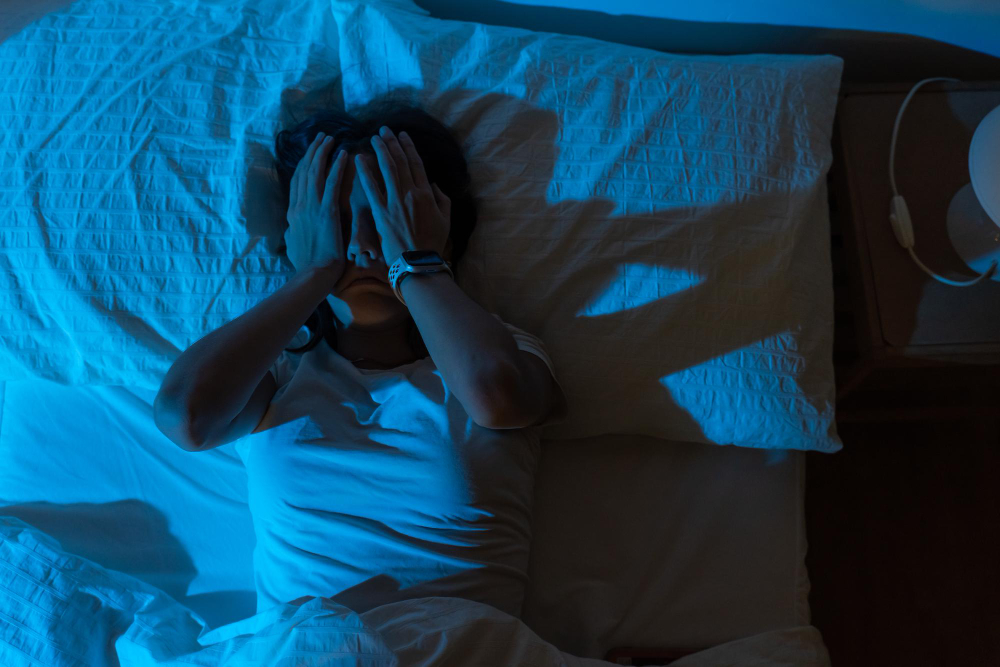Why Anxiety Feels Worse at Night & Tips to Overcome It

Many people experience anxiety during the day, but for some, it feels even more intense at night. If you're one of them, you're not alone. According to research, up to 60% of people with anxiety experience increased symptoms at night. This phenomenon can make it difficult to sleep, to relax, and to function during the day. But why does anxiety feel worse at night, and more importantly, what can you do about it? In this blog post, we'll explore the causes of nighttime anxiety and some effective tips to help you manage it.
Too much time alone with your thoughts
One of the main reasons why anxiety feels more intense at night is because we have more time to focus on our thoughts and worries. During the day, we're often busy with work, chores, socializing, and other activities that distract us from our anxious thoughts. But at night, when everything is quiet and still, those thoughts can become overwhelming. The key here is to find ways to distract yourself during those late hours. Try reading a book, watching a favorite movie, listening to relaxing music, or any other calming activity that will help you shift your focus away from your worries.
Lack of distractions
Aside from having more time to think, night-time anxiety can also be the result of a lack of distractions. During the day, we're exposed to countless stimuli that can help us take our mind off things. Whether it's work, TV, or social media, we hardly ever run out of things to distract us. At night, however, the lack of external stimulation can make our anxious thoughts feel more intense. To combat this, try introducing some distractions into your bedtime routine such as aromatherapy, a guided meditation, or a relaxing bath.
Physical discomfort
Anxiety also has a physical component, and this can be heightened at night. For example, if you're prone to muscle tension or headaches, you may notice that these symptoms are worse as you get ready for bed. In addition, since anxiety can lead to stomach problems such as acidity and indigestion, you may also experience discomfort that can make it difficult to sleep. To address this, try engaging in some light physical activity before bed, such as stretching, yoga, or a short walk. Additionally, try to avoid heavy or spicy meals before bedtime, and if you are experiencing physical pain, seek medication or medical help.
Mindfulness techniques
Finally, one of the most effective ways to reduce night-time anxiety is to practice mindfulness. Mindfulness involves paying attention to the present moment without judgment or distraction. This can help you become more aware of your thoughts and emotions, which can in turn help you manage them more effectively. A great way to start practicing mindfulness is through simple breathing exercises, guided meditation, or yoga. You can also practice mindfulness by simply paying attention to your senses, such as how your breath feels or the taste of a sip of water.
Conclusion
In conclusion, anxiety that feels worse at night can be overwhelming, but it's not insurmountable. By understanding the causes of night-time anxiety and using some of the tips we've discussed, you can learn to manage your symptoms and get a good night's sleep. Don't hesitate to seek positive interventions and consider counseling as a helpful way to manage your symptoms. With the right tools and resources, you can take control of your anxiety and start living your life to the fullest. If you're looking for individual counseling in Orlando, FL, contact Orlando Thrive Therapy today for more information.
